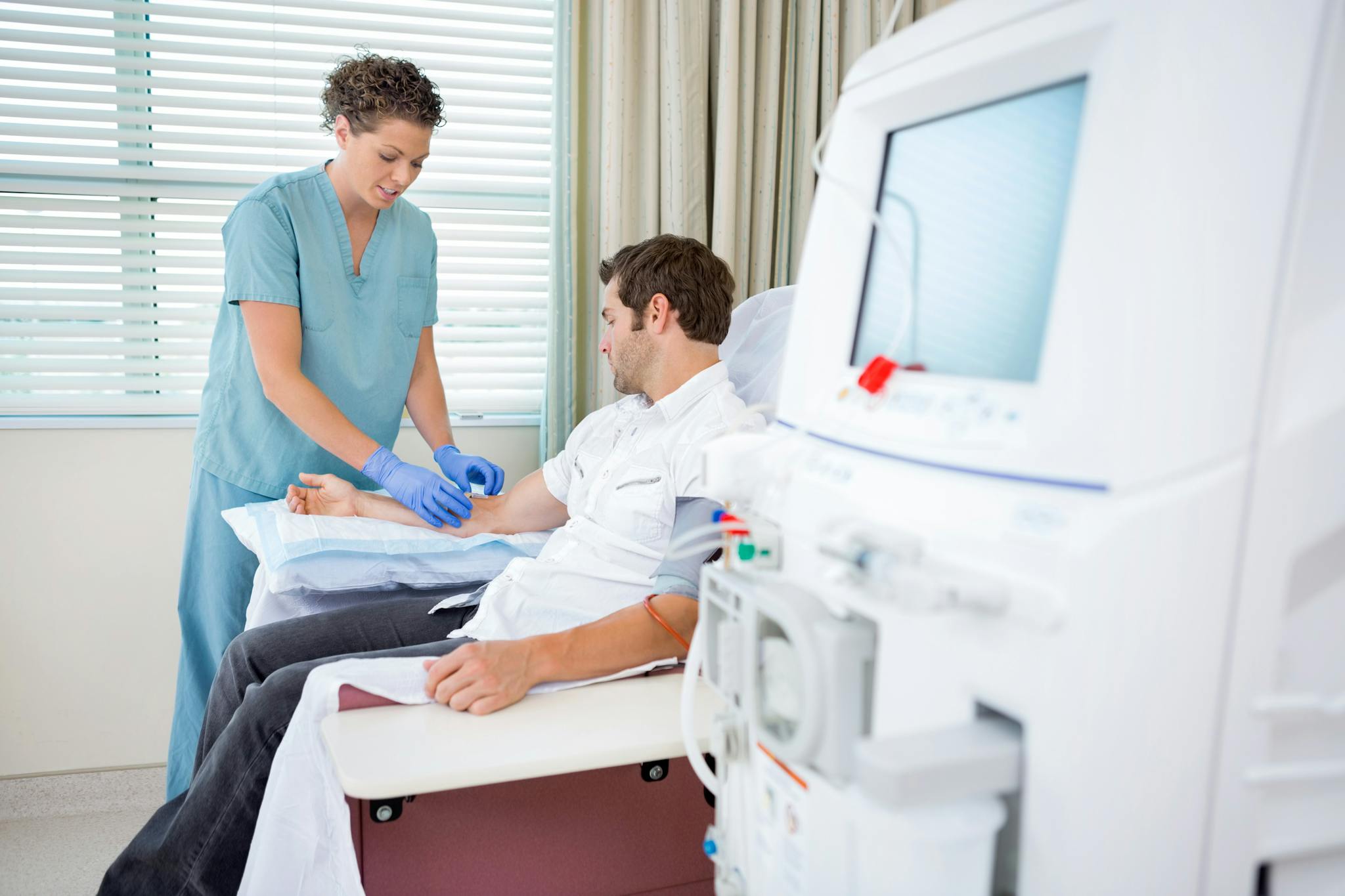
2024-07-12T16:54:51
Sunscreen Travel Tips
- Dermatology
August 11, 2016 | Nephrology

Your kidneys perform an important job; they filter toxins, waste and extra fluids from your blood to help keep your body regulated. If your kidneys are damaged or not working properly, then you might need dialysis to perform these important tasks for you.
According to the National Kidney Foundation, most patients need dialysis when they experience end stage kidney failure, or have lost 85-90 percent of their kidney function. If this happens, your nephrologist will recommend dialysis to perform the tasks your kidneys are struggling to do on their own.
This life-saving treatment uses a machine to filter waste, salt and harmful fluids from your body and restore your blood to a healthier state. Dialysis uses technology to mimic the kidney’s natural functions and can help you survive after kidney or renal failure. There are two kinds of dialysis, and your nephrologist can determine which type suits your needs and condition best:
Hemodialysis: This process uses a special machine to filter and clean your blood. You’ll be hooked up to the dialysis machine each session and your blood will be slowly filtered, cleaned and then returned to your body. If you are undergoing hemodialysis, you’ll have a special port for the machine to access so you do not have to get a needle or IV each time.
The amount of hemodialysis you’ll need depends on a variety of factors. According to WebMD, most patients need dialysis several times per week and session lengths can vary from 3-5 hours or more. Some factors that can impact how long a session takes and how frequently you need dialysis include your weight, your current level of kidney function and the amount of waste and fluid in your system.
Peritoneal Dialysis: This form of dialysis does not require a visit to a dialysis center or a machine; the lining of your abdominal cavity serves as a filter for your blood instead. Your nephrologist or surgeon will make a small incision in your abdomen so that a catheter can be inserted; you can then perform daily treatments on your own. Each time you treat your blood, you’ll add a dialysis solution to the catheter, allowing it to fill the abdominal cavity. You’ll rest, sleep or do your normal activities while the solution does its work. Once the solution sits in your body for a set amount of time (usually between four and six hours), you drain the solution and waste from your abdomen and resume your normal activities.
There are several types of peritoneal dialysis, and each is designed to allow for more independence and limit the number of times you need to visit a dialysis center or medical facility each month. By performing dialysis at home, you can clean your blood and enjoy the benefits of dialysis without having to significantly disrupt your routine or miss out on important events and activities.
Since both types of dialysis use a port for access, you won’t experience pain during the process. Both approaches do require some downtime and attention, however. You’ll either need to do several rounds of peritoneal dialysis per day or several hemodialysis sessions per week.
While dialysis is not painful, it can disrupt your regular routine and it will take some time to get adjusted to a “new normal” way of life. Some patients report feeling depressed or tired after beginning dialysis, according to the National Kidney Foundation. Since kidney dialysis is a significant time commitment, you may feel stressed about time, work or completing typical tasks; adjusting your schedule can help you cope.
Your doctor may recommend some specific changes to your diet during dialysis, too. For many patients with kidney problems, limiting fluids and salts can help improve outcomes. A high protein diet can also help. Your provider and health care team can help you learn more about the dietary changes you’ll need to make when you begin dialysis.
Learning more about dialysis and what to expect from the process can help you be a proactive part of your healthcare team. To learn more about the process or determine if it is the right approach for you, contact your Revere Health nephrologist to talk about your options.
WRITTEN BY:
The Live Better Team


2024-07-12T16:54:51

2024-07-02T11:42:04

2024-07-01T13:49:28

2024-06-21T14:29:51
This information is not intended to replace the advice of a medical professional. You should always consult your doctor before making decisions about your health.